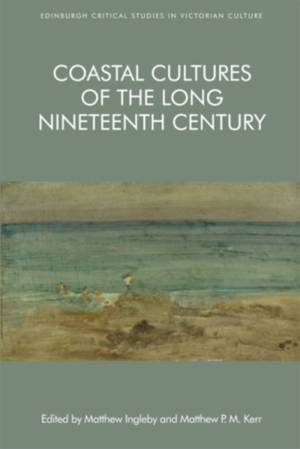
- Retrait gratuit dans votre magasin Club
- 7.000.000 titres dans notre catalogue
- Payer en toute sécurité
- Toujours un magasin près de chez vous
- Retrait gratuit dans votre magasin Club
- 7.000.000 titres dans notre catalogue
- Payer en toute sécurité
- Toujours un magasin près de chez vous
Description
Examines the cultural importance of the coastline in the nineteenth-century British imagination
The long nineteenth century witnessed a dramatic, varied flourishing in uses for and understandings of the coast, which could seem at once a space of clarity or of misty distance, a terminus or a place of embarkation - a place of solitude and exhilaration, of uselessness and instrumentality. Coastal Cultures of the Long Nineteenth Century takes as its subject this diverse set of meanings, using them to interrogate questions of space, place and cultural production.
Outlining a broad range of coastal imaginings and engagements with the seaside, the book highlights the multivalent or even contradictory dimensions of these spaces. The collection offers essays from major figures in the cutting-edge field of maritime studies and includes interdisciplinary discussions of coastal spaces relevant to literary criticism, art history, museum studies, and cultural geography.
Key Features
Presents new essays from major figures in the cutting-edge field of maritime studiesOffers interdisciplinary discussions of coastal spaces relevant to literary criticism, art history, museum studies and cultural geographyQuestions traditional scholarly period boundaries by spanning the late eighteenth to the early twentieth centuries
Spécifications
Parties prenantes
- Auteur(s) :
- Editeur:
Contenu
- Nombre de pages :
- 288
- Langue:
- Anglais
- Collection :
Caractéristiques
- EAN:
- 9781474435734
- Date de parution :
- 02-08-18
- Format:
- Livre relié
- Format numérique:
- Genaaid
- Dimensions :
- 155 mm x 236 mm
- Poids :
- 780 g







